Training Courses in archaeological surveying, GIS and more.
‘Training Field School’ our flagship excavation training experiences; covering a wide variety of topics and skill-
“Post-



Welby Excavation Week,
near Melton Mowbray, Leicestershire
5 day event
*Only available to previous field school delegates (see top of page)


The Sherwood Forest Excavation week, Nottinghamshire
5 day event
*Only available to previous field school delegates (see top of page)

Bainbridge Excavation week,
Wensleydale, Yorkshire
5 day event
*Only available to previous field school delegates (see top of page)





Excavation Weeks *
*Available to delegates who have previously attended one of Mercian’s Training Field Schools


2026 Dates:
See below
Course calendar 2026/ 2027 (in date order):
17th -
2026
2027 Dates
See below
This two day course, lead by experts from Mercian Archaeological Services CIC, will teach the basics of artefact illustration.
Take your skills to the next level by joining our three day long:
Artefact Illustration Course 2026
at King’s Clipstone.
Price £295 per person
The course will be taught through a combination of lectures and demonstrations and practical activities, with delegates getting the opportunity to practice their illustration skills on a range of genuine archaeological material.
Providing the finished drawings are sufficiently accurate and high quality they may be used in site reports and publications, in which case they will be credited in the reports.
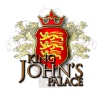
Despite the ready availability of digital cameras and the near universal application of colour printing in archaeological monographs and journals these days there is still a need for artefact illustrations.
Indeed, a good artefact illustration can convey much more information about the object than even a good photograph.
Drawing an artefact also compels the illustrator to look at it in great detail, which can allow subtle details to be revealed and a greater understanding of the artefact to be reached.
Delegates will learn the conventions and techniques used in producing artefact drawings, and will put these into practice using real archaeological material.
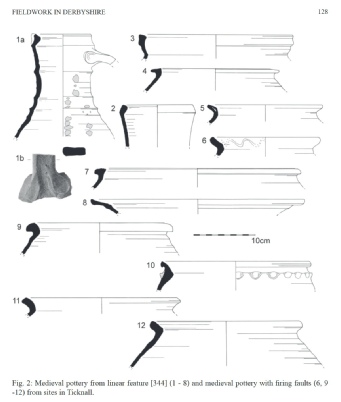

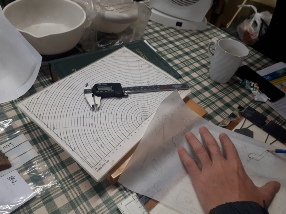
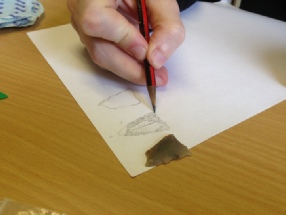

As well as offering the best archaeological experience opportunity, the Artefact Illustration course fulfils a Tertiary element of the Archaeological Skills Passport programme.

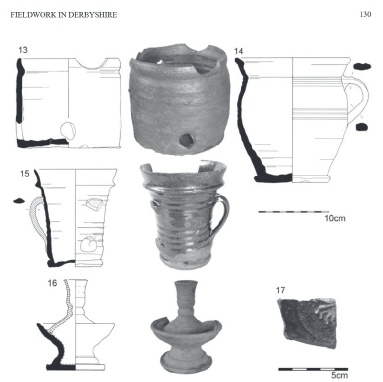
Day one will be spent looking at the conventions and techniques of artefact illustration, and will then focus on how pottery is drawn, with the majority of the day spent producing pot drawings.
Day two will focus on small find illustration (i.e. struck flint; metalwork (of different types); worked stone; clay tobacco pipes; etc.) with delegates able to choose to practice drawing one or multiple types of objects from this list.
The practical sessions will focus producing drawings using pencil and paper and drafting film and ink, and include inking drawings up for publication using pen and drafting film.
As the majority of archaeological illustrations these days are finished digitally, the final session of the course provides an overview of some of the digital work-
There will not be time for delegates to practice digital illustration as part of this course, but those delegates who wish should be sufficiently equipped to practice these techniques on their own after the course.
No experience or artistic talent is required to produce archaeological illustrations!
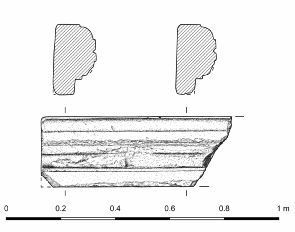

This course will be suitable for anyone who wishes to learn about archaeological artefact illustration, whether just for fun or personal gratification, if they wish to be able to illustrate reports for local archaeological societies and groups, or if they wish to undertake archaeological illustration professionally. The techniques and conventions learned will be applicable at all levels.
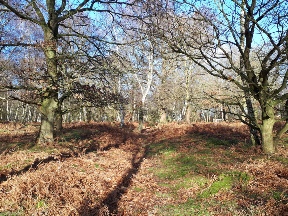
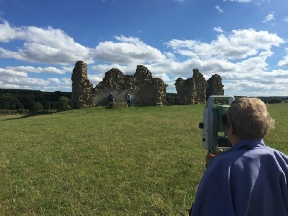
In archaeology the ability to measure the location of a site, artefact, or earthwork is essential.
Nowadays many archaeological sites use either GPS or Total Station for site survey. Differential GPS can record points of circa 1cm accuracy levels in three dimensions, and can also allow real time ‘on the fly’ measurements to be taken allowing large areas of land to be surveyed. The total station is an electronic theodolite and Electronic Distance Measurer that records point locations by measuring distance and angles.
This course will teach the required skills that are used on excavations and other sites for locating features using GPS and total Station.
The course will also go further to enable participants to learn the complex skills of archaeological topographic survey, recording a site with a combination of both objective and subjective survey methods.
Topographic Survey Training day course aims to help participants learn about the theory, science, uses, methods, logistics, deployment, data collection, data processing, and reporting, behind archaeological topographic surveying.
The course will include a mixture of classroom and field based working. This is a field based training course consisting of hands-
The course will include:
- Introduction and theory, working in grids, mapping in 2 D and 3D, working with co-
ordinates and heights, ‘X,Y, & Z’, - Pythagoras and Right Angles,
- Levelling heights in ‘Z’,
- Laying out a trench from Ordnance Survey co-
ordinates - ‘X & Y’, - Introduction to Total Station & GPS,
- Undertaking the survey -
data collection, including control points, total station survey and cross- sections with a dumpy level. - Introduction to mapping in 3D with a Dumpy Level.
- Downloading data,
- Introduction to 2D mapping,
- Creating a Digital Terrain Model in GIS.
Students will meet at at King John’s Palace in Clipstone. The training will take place at the site of the Palace, and a survey will be undertaken in Sherwood Forest National Nature Reserve. Full details of the site will be provided nearer the time, but will be within 2 miles of King John’s Palace (transport from the classroom sessions to the field will be provided if required).
The survey training will begin at King John’s Palace, former royal heart of Sherwood Forest, and then move to the Sherwood Forest National Nature Reserve where earthworks from Medieval Holloways and ridge and furrow to Second World War Military dug-
As well as being a training survey, this course will undertake real archaeological research, mapping and recording earthworks as part of a level two survey of archaeological features as part of the Sherwood Forest National Nature Reserve Archaeological Survey.
Ancient track-
Learning to survey with Total Station at King John’s Palace
As well as offering the best in archaeological training and support, the topographic survey course is tailored towards enabling attendees to fulfil requirements of the Archaeological Skills Passport.

Take your skills to the next level by joining our week long
Topographic Survey Training Course 2026
King John’s Palace and Sherwood Forest, Nottinghamshire.
Price £375 per person
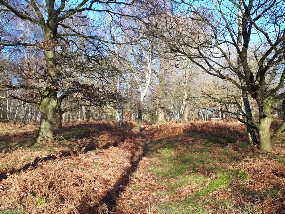
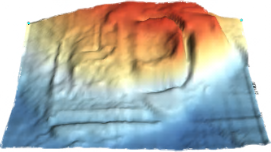
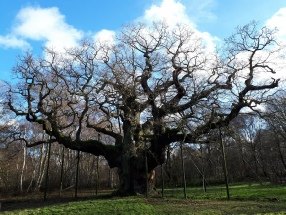
The Major Oak legendary hideaway of Robin Hood in Sherwood Forest
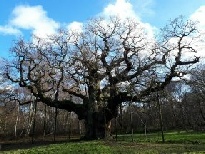
2026 Dates:
Week long course
13th -


Take your skills to the next level by joining our week long
‘Exploring Landscape Archaeology’
Course 2026
at King’s Clipstone, and around Sherwood Forest
Price £375 per person


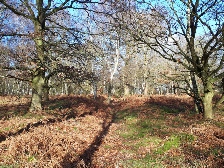
This 5-
The course uses the legendary landscape of Sherwood Forest as the main case study, with site visits to Creswell Crags, Thynghowe and Robin Hood’s Hill, Laxton and Wellow villages, The Sherwood Forest National Nature Reserve, and Thoresby Park, and also includes examples from around the UK and the wider world, to enable students to experience the subject first-
The course studies not only the changes in landscape use over time, but also how peoples relationship to the landscape, in terms of it was viewed and imagined, changed over time as well.
The course introduces the history of landscape archaeology as a discipline and the evolution of the philosophies of landscape archaeology including those of processual and post-
It also presents many of the methods available for examining, recording and viewing the landscape, and for reconstructing historic landscapes, including:
- topographic survey,
- geophysical survey,
- LiDAR and landscapes,
- multi-
spectral data, - historic mapping analysis,
- aerial photography,
- archaeoastronomy, and the relationship of landscapes to skyscapes.
The physical landscape is explored including:
- the geological formations (and geological history),
- soils,
- topography,
- rivers,
- and in particular the resultant impact these physical aspects have on subsequent settlement patterns and land-
use.
The human landscape is then studied in relation to this underlying physical landscape, including the evolution of landscapes over time from prehistoric to present day.
- settlement patterns,
- toponymic survey (place-
name studies) and what place- names reveal of the physical and cultural landscape. - Villagescapes and daily life,
- geology and the built environment,
- agricultural practices (pastoral and arable),
- the importance of different plants and their uses, and the impact on the landscape (focusing on Sherwood Forest).
The course then looks at different layers of cultural, and imagined landscapes:
- political and administrative (including Viking assembly, hunting, and Forest law as local case studies),
- human landscapes and experience,
- philosophy and landscape,
- art, poetry, literature and landscape,
- skyscapes and monuments,
- semiotics (the signs, language and symbols) of landscape,
- allegory and landscape (literary, religious and cultural -
case studies include Clipstone and the Designed medieval landscape), - legendary landscapes (including Robin Hood).
- Enclosure, and clearing of the common land,
- 18h and 19th century English Landscape Garden design, and the Dukeries Estates, including Capability Brown and Humphrey Repton,
- Romanticism, notions of beauty, the sublime, and the picturesque, and their impact on 17th 18th, and 19th century landscapes
- and much more…
The course then looks at some of the ways archaeologists attempt to understand the subjective human experience of landscapes in the past including:
- Cognitive landscapes
- Phenomenology of landscape
The course is located at King John's Palace in Sherwood Forest, and includes site visits around the Sherwood Forest landscape.
The course includes entry to, and a guided tour of the Palaeolithic Rock art at the site of Creswell Crags, as well as many other sites in the world famous Sherwood Forest landscape.
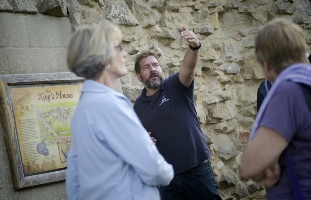
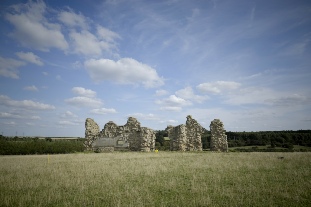
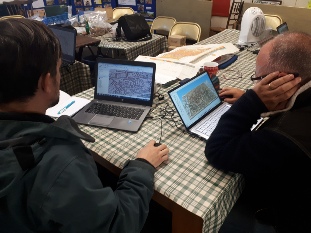
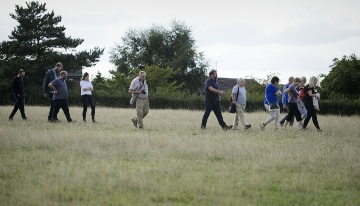
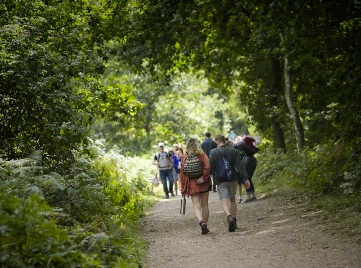
Archaeological Training Excavation:
This course is suitable for all levels from beginner to experienced digger.
This training course focuses on the skills of archaeological excavation. You will receive training and experience in many techniques of excavation, including many Core Skills listed in the Archaeological Skills Passport:
Handtools (Trowel etc), Handtools (Spade, Mattock etc), Site Formation Processes, Stratigraphic Excavation, Context Sheet Recording, Site Photography, Dumpy Level and Staff, Archaeological drawing, Artefact Recovery, Recording & Storage, Site Safety.
This training course focuses on excavation and recording skills but there will also be a chance to undertake a number of techniques that make up the Secondary Skills of the Archaeology Skills Passport including:
Finds Processing.
All techniques are taught and experienced throughout the week, a mixture of classroom sessions and hands on training from our Archaeological experts.


Join Mercian Archaeological Services CIC in the beautiful Leicester countryside for this week-
As well as offering the very best in archaeological training and support, this training excavation is tailored towards enabling attendees to fulfil requirements of the Archaeological Skills Passport.
The Deserted Village of Welby is situated 3km to the north-
The site “sits within a historically rich landscape with close proximity to prehistoric and Romano-
The site sits a few miles north of the Historic market town of Melton Mowbray.
“Melton Mowbray is a town in Leicestershire, England, 19 miles (31 km) north-
(https://en.wikipedia.org/wiki/Melton_Mowbray)
2026 Dates:
Week 1: 22nd Jun-
Week 2: 29th June Jun -
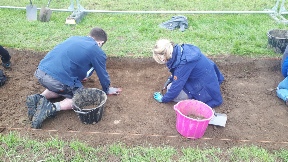
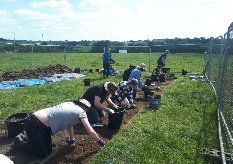
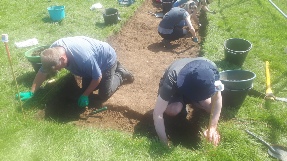
Welby Archaeological Training Field School
2026
At Welby, Melton Mowbray, Leicestershire.
Price £495 per person, or £395 per student (in full time education 18 and under, Student NUS card holder or international equivalent*, Distance Learning etc)

This course is suitable for all levels from beginner to experienced digger.
We cover the Core Skills of the Archaeological Skills Passport:
Handtools (Trowel etc); Handtools (Spade, Mattock etc); Site Formation Processes; Stratigraphic Excavation; Context Sheet Recording; Site Photography; Site Grid and Trench Layout;; Dumpy Level and Staff; Planning; Section Drawing; Site Safety;
And we also provide lessons in:
Finds Processing; Pottery identification; Finds handling; Finds processing; History of Ceramics lectures and much more…
Field Days include a lunchtime sandwich.
The Sherwood Forest Archaeology Training Field School focuses on the medieval hunting lodge and palatial enclosure of the King’s Houses, now known as King John’s Palace, and the designed landscape that surrounded it.
King John’s Palace was the Royal Heart of Sherwood Forest in the Medieval period.
The site was visited by all 8 kings from Henry II to Richard II, with King John possibly holding a proto-
As part of the field school attendees will have the opportunity to learn all about Sherwood Forest, Robin Hood, outlaws, foresters, the landscape of Sherwood Forest in medieval times, the forest law, courts, offences and judiciary, the Palace at Clipstone, monasteries, chapels and hermitages, hunting parks, Nottingham Castle , Sheriffs and much much more about life in Medieval Sherwood Forest…
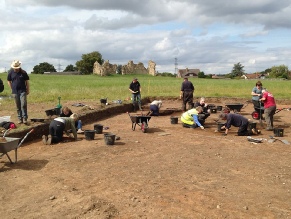

This is not an ordinary field school -
As well as offering the best in archaeological training and support, the Field School is tailored towards enabling attendees to fulfil the requirements of the
Archaeological Skills Passport.
2026 Dates:
Week 1: 20th -
Week 2: 27th -
Week 3: 10th -
Take your skills to the next level by joining our week long
Sherwood Forest Archaeological Training
Field School 2026
at King’s Clipstone.
Price £495 per person, or £395 per student (in full time education 18 and under, Student NUS card holder or international equivalent*, Distance Learning etc)
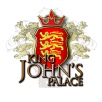
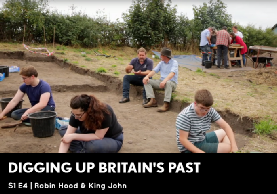
As featured on Channel 5…

Archaeological Training Field School:
Join Mercian Archaeological Services CIC in the beautiful Yorkshire Dales for this week-
As well as offering the very best in archaeological training and support, this training excavation is tailored towards enabling attendees to fulfil requirements of the Archaeological Skills Passport.


The beautiful village of Bainbridge was formerly the administrative centre of the medieval Forest of Wensleydale, and the magnificent Bolton Castle near Leyburn dominates the valley to the east. A Roman fort looms large over the village on the eastern side.
The site of the excavation is overlooked by a Late Bronze Age to Early Iron Age Slight Univallate Hillfort. This fort occupies the high ground at the top of a steep slope on the southern side of the site.
We will be concentrating our excavations on the possible medieval manorial complex to the north of this fort, which has been identified from earthworks and recently discovered pottery (see below).
The area is famous not only for its beautiful landscape, but also it world famous cheese, and as the backdrop to the Television series ‘All Creatures Great and Small’.
Archaeological Training Excavation:
This course is suitable for all levels from beginner to experienced digger.
This training course focuses on the skills of archaeological excavation. You will receive training and experience in many techniques of excavation, including many Core Skills listed in the Archaeological Skills Passport:
Handtools (Trowel etc), Handtools (Spade, Mattock etc), Site Formation Processes, Stratigraphic Excavation, Context Sheet Recording, Site Photography, Dumpy Level and Staff, Archaeological drawing, Artefact Recovery, Recording & Storage, Site Safety.
This training course focuses on excavation and recording skills but there will also be a chance to undertake a number of techniques that make up the Secondary Skills of the Archaeology Skills Passport including:
Finds Processing.
All techniques are taught and experienced throughout the week, a mixture of classroom sessions and hands on training from our Archaeological experts.
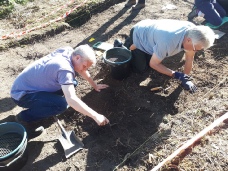
Bainbridge Archaeological Training Field School 2026
At Bainbridge, Wensleydale, North Yorkshire.
Price £495 per person, or £395 per student (in full time education, NUS card holder or international equivalent*)
2026 Dates
Week 1: 7th -
Week 2: 14th -
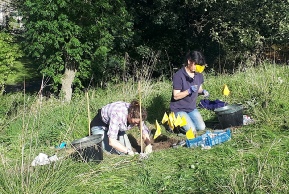

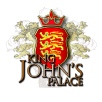
This training school is designed to provide training and experience in various aspects of the post excavation process. All tuition and training will be carried out under the supervision of experienced tutors, with finds training lead by Mercian's ceramic specialist David Budge.
The course is designed to give delegates an understanding of what is involved in the post excavation process for finds, ranging from initial cleaning and processing of the finds as they come out of the ground, through to some of the specialist analysis that finds are subject to, through to illustration and preparation of the finds for publication.
The course is designed to allow delegates to gain experience of handling finds and to develop the ability to look at artefacts critically with a view to recognising the clues that give evidence of what they were used for and that can help to identify them.
The course also provides training in archaeological drawing techniques including preparing plans and /or sections for publication, and training in working with site archives to create site matrices.
Delegates will also learn archaeological GIS (Geographic Information Systems) including working with survey data, preparing maps, working with historic mapping, creating and working with 3D models.
Take your skills to the next level by joining our week long
Post-
at King’s Clipstone.
Price £495 per person, or £395 per student (in full time education 18 and under, Student NUS card holder or international equivalent*, Distance Learning etc)


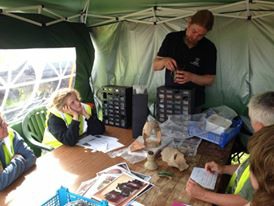
*Please note that while aspects of this course will be in-

As well as offering the best in archaeological training and support, the 2021 Post-
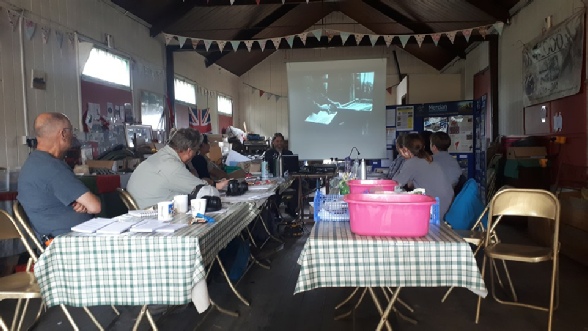
All training will take place at the Tin Tabernacle, King John’s Palace, Kings Clipstone, Sherwood Forest, Nottinghamshire, England.
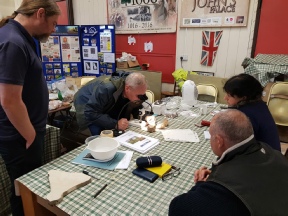
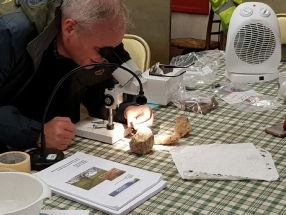
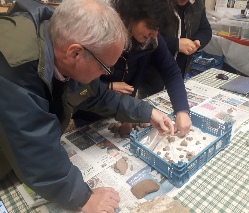
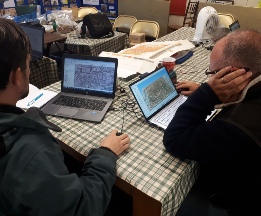
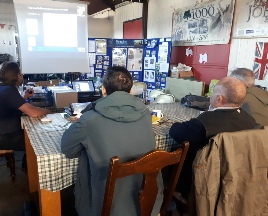
2026 Dates:
19th -

This training school is designed to provide delegates with and introduction to using GIS (Geographic Information Systems) for archaeology.
Archaeological GIS training:
Delegates will work with survey data and learn how to create maps, vector layers and geo-
A Geographic Information System (GIS) is a system designed to capture, store, manipulate, analyse, manage, and present spatial or geographic data.
Archaeologists use GIS for many things including creating maps, analysing landscapes, understanding archaeological sites, creating 3D models, viewshed analysis, presenting survey data and more.
GIS is a great way to integrate data from projects and can be used to analyse that data as well as present it in the form of maps for publication.
The images to the below include GIS being used in building analysis, surveying, map work, and the displaying of geophysical survey data.
Take your skills to the next level by joining our 3 day
Introduction to GIS in Archaeology 2026
at King’s Clipstone.
Price £295 per person
3 Day Course



As well as offering the best in archaeological training and support, the 2021 Post-

All training will take place at the Tin Tabernacle, King John’s Palace, Kings Clipstone, Sherwood Forest, Nottinghamshire, England.
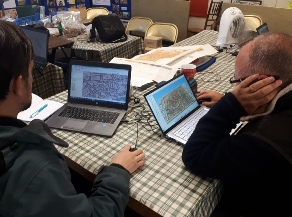
2026 Dates:
Week of
14th -
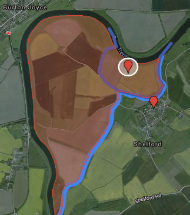
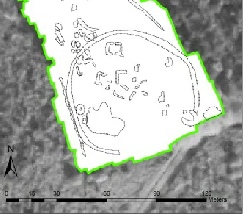
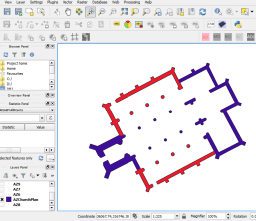
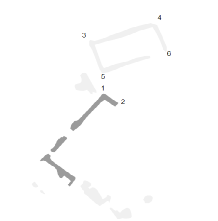
Course details:

Community Archaeology in Derbyshire
Community Archaeology in Leicestershire
Community Archaeology Nottinghamshire, Excavation, Research, Volunteering, Community Archaeology Derbyshire, Training, Social, Learning, Community Archaeology Leicestershire, Heritage, Involvement, Belonging, Knowledge sharing, Community Archaeology Lincolnshire, Topographic Survey, Talks and Presentations, Outreach, Archaeology Projects , Open Days, Schools, Finds Processing, Day Schools, Field Schools, Young People, Archaeology and History of Sherwood Forest, Pottery Research, Medieval, Roman, Prehistoric, Community Interest Company, Community Archaeology Nottinghamshire.
Community Archaeology in Nottinghamshire
Community Archaeology East Midlands
Community Archaeology in Lincolnshire
Community Archaeology in Yorkshire
Mercian Archaeological Services CIC
Specialists in Community Archaeology, Public Involvement, Research & Training






© Mercian Archaeological Services CIC 2025. Registered Business No. 08347842. All Rights Reserved.
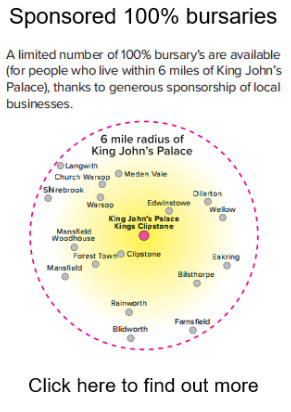
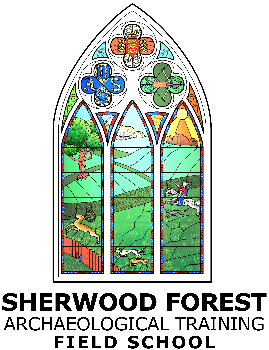


Community Archaeology Nottinghamshire, Community Archaeology Derbyshire, Community Archaeology Leicestershire, Community Archaeology East Midlands, Mercian Archaeological Services Community Archaeology for Nottinghamshire, Derbyshire, Sherwood Forest, Leicestershire and the East Midlands. Community Archaeology Nottinghamshire, Community Archaeology East Midlands, Community Archaeology Leicestershire. Archaeological
Archaeological Field Schools and Training Courses

We offer a variety of archaeology weeks that enable you to choose the school most suited to your needs.
These include (coded by colour):
Week: 11th -
Week : 18th -
Week 3: 5th -
2026 Dates
Three day courses:
Course 1: 8th -
Course 2: 28th -
2026 Dates:
Week 1: 11th -
Week 2: 18th -
Week 3: 5th -
Week 1: 22nd Jun-
Week 2: 29th June Jun -
6th -
Week 1: 20th -
Week 2: 27th -
Week 3: 10th -
Week1: 7th -
Week 2: 14th -
21st -
19th -
14th -
8th -
28th -

13th -